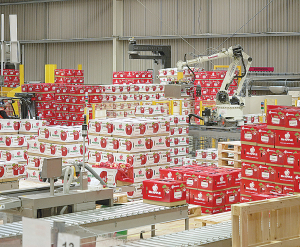Non-tariff trade measures (NTM) remain a problem for NZ exporters, according to Horticulture Export Authority (HEA) chief executive Simon Hegarty.
The HEA released its latest report on 'Barriers to NZ's Horticulture trade'. The 235-page report, produced by the HEA every two years, is effectively an encyclopaedia of what has happened and is likely to happen in the sector.
Hegarty says while existing trade barriers cost the sector around $135 million a year, it's the NTMs that are causing NZ real grief on a daily basis.
Hegarty says these include overly complex regulations and the lengthy time taken by some countries to process an application for a new product to enter their market. Other barriers include compliance around phytosanitary requirements, product labelling, pre-shipment inspections and just getting goods cleared through customs, to name a few.
He says there are other headwinds facing the sector 10-15 days longer to get to Europe and that is disrupting the whole global shipping schedules," he says.
Hegarty says NZ is an isolated nation which struggles to attract freight providers because some of the routes to and from Asia to Europe and the USA are more lucrative.
On the other hand, he says NZ is benefiting from the recent NZ/EU FTA which came into force this year; the removal of tariffs resulted in a $27 million dollar benefit. Other FTAs in the Middle East also had a positive impact, he says.
The HEA report shows that horticulture exports for 2024 were worth $4.9 billion - up just 2% on 2022. But the report notes that this growth in dollar terms came at a time when the actual volume of exports declined by 11%.
Hegarty says kiwifruit and apples make up 77% of horticulture's export revenue with onions coming in third place. He says China is the biggest buyer of our products, followed by the EU, Japan and Australia.
Meanwhile, like other sectors, horticulture is also finding it a challenge to secure a trade deal with India.
NZ hort exports to India amount to just over $78 million - mainly apples but also some kiwifruit. The trouble is apple exports attract a 50% tariff and kiwifruit 30% which cuts into profit margins.
In the past week, a delegation of horticulture exporters (no politicians) representing kiwifruit, apples and pears, onions, avocados, the HEA and others have been in India. Their objective is a reconnaissance mission to get a better handle on the opportunities there, the logistics of increasing our market share and getting a first-hand understanding of how India does business.



















